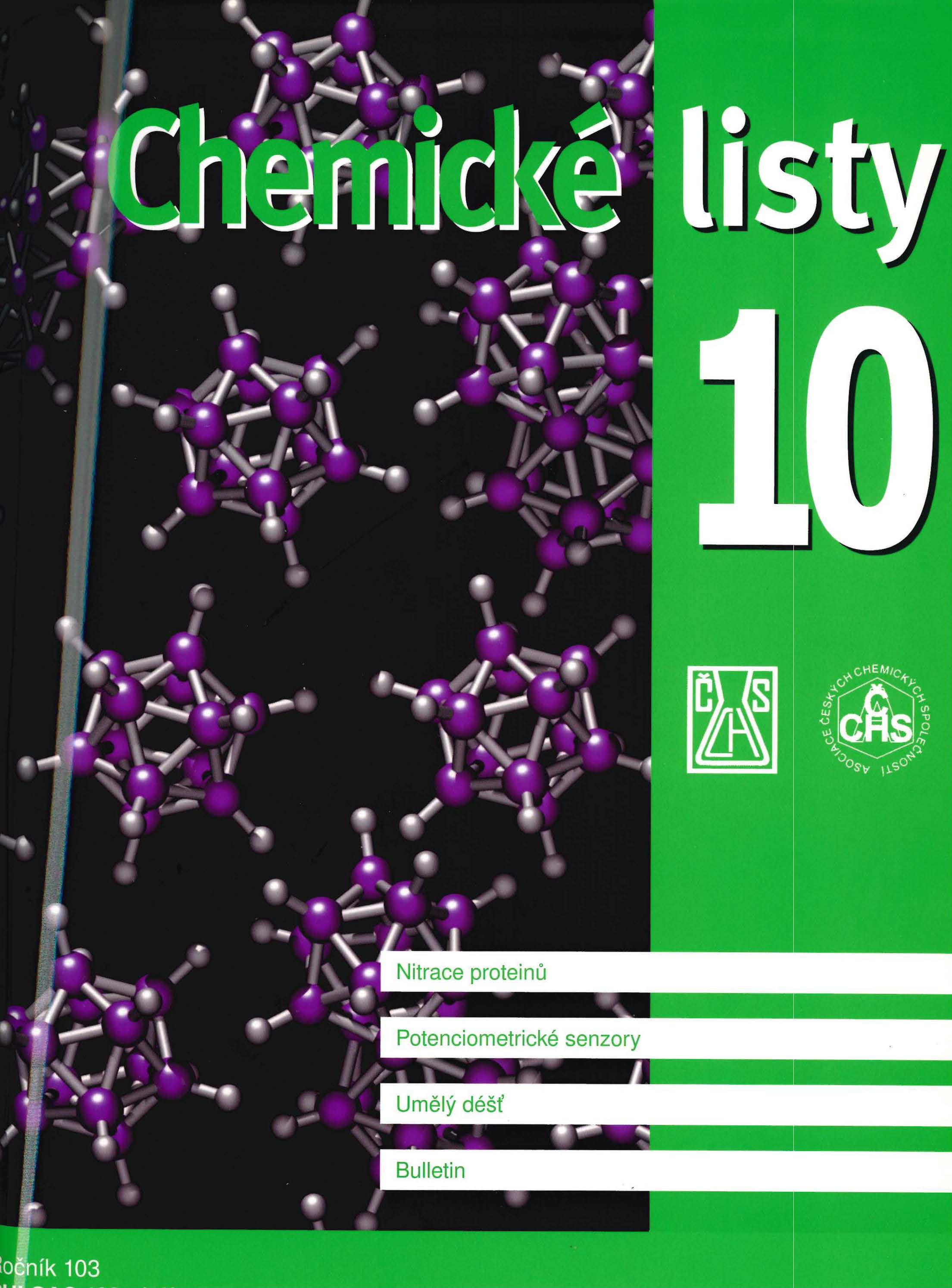Immobilized Singlet Oxygen Photosensitizers and Their Antimicrobial Effect
Abstract
Advances in the use of immobilized photosensitizing dyes for singlet oxygen (1O2) production are surveyed. The main characteristics of the photoexcitation process and its biological importance are mentioned. The photosensitizers (porphyrin and phthalocyanine derivatives, phenothiazine dyes), the methods of their immobilization (adsorption, covalent bonding and incorporation into polymers), the supports used (silica, silicon matrices, styrene-divinylbenzene copolymers, polyurethanes, polyamides, epoxy resins, and cellulose acetates) are discussed. Bioactivity of the products and their potential applications (disinfection of potable water, additives to antimicrobial paints, membranes, and fabrics) are also mentioned.Downloads
Published
2009-11-15
How to Cite
Rychtáriková, R., & Kuncová, G. (2009). Immobilized Singlet Oxygen Photosensitizers and Their Antimicrobial Effect. Chemické Listy, 103(10). Retrieved from http://www-.chemicke-listy.cz/ojs3/index.php/chemicke-listy/article/view/1449
Issue
Section
Articles





